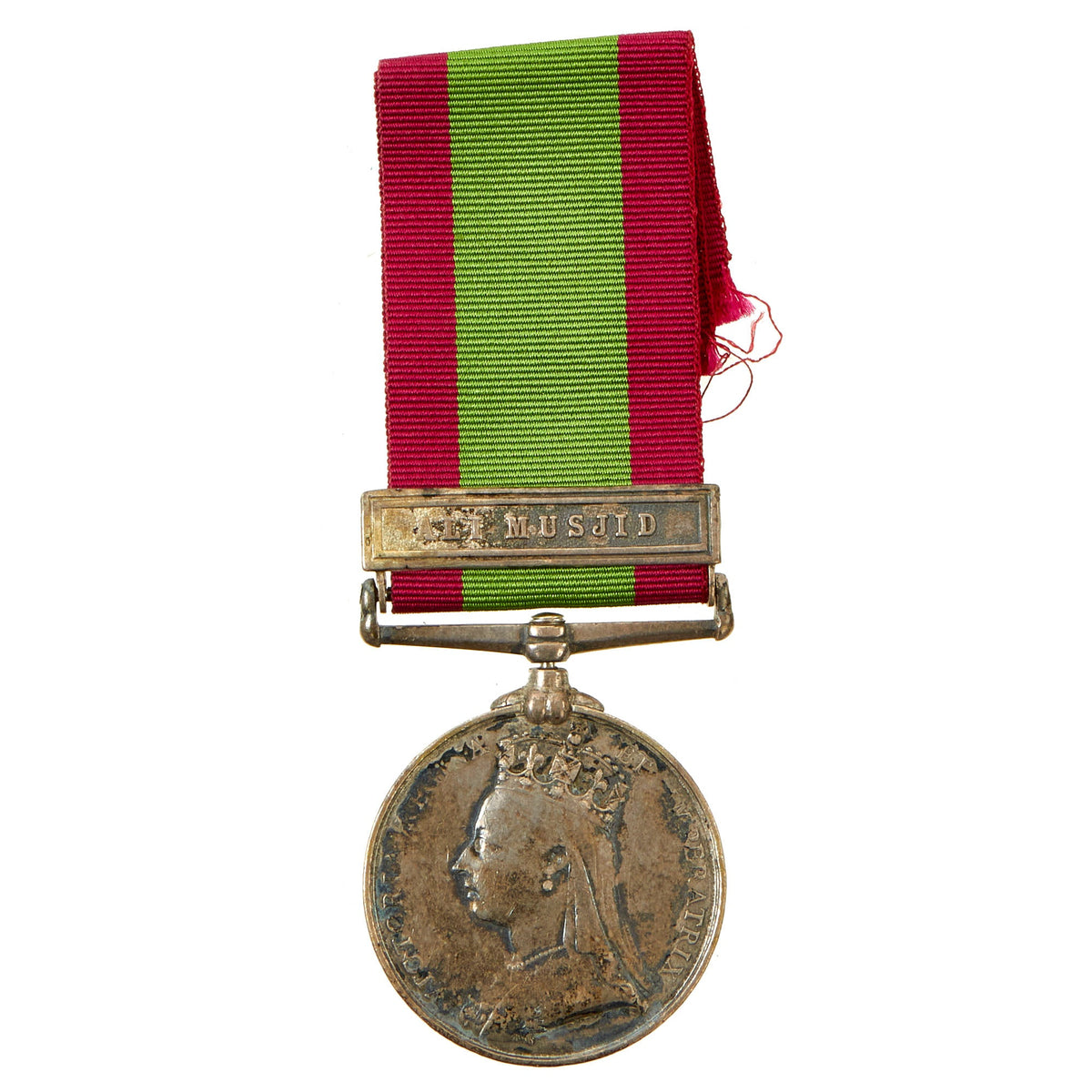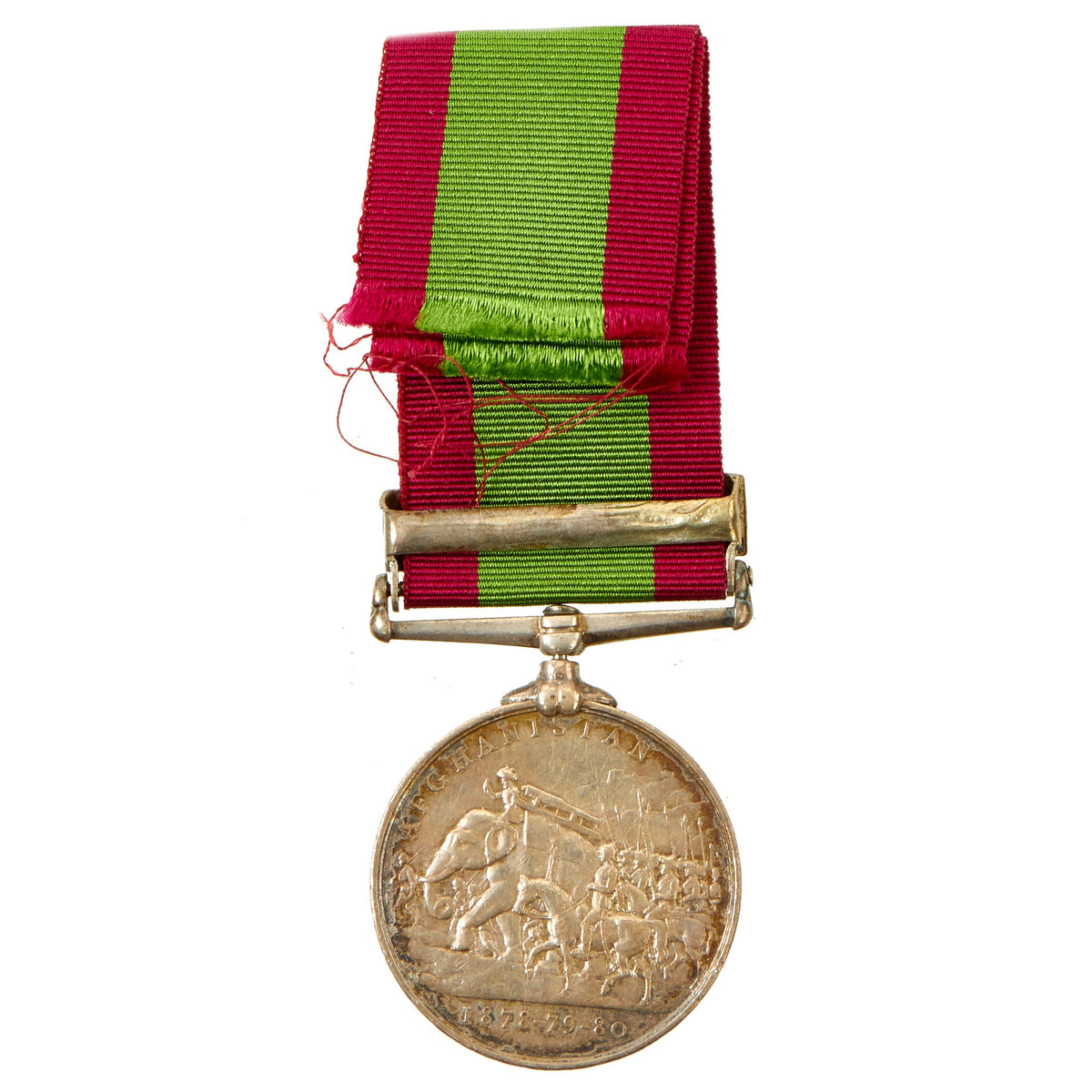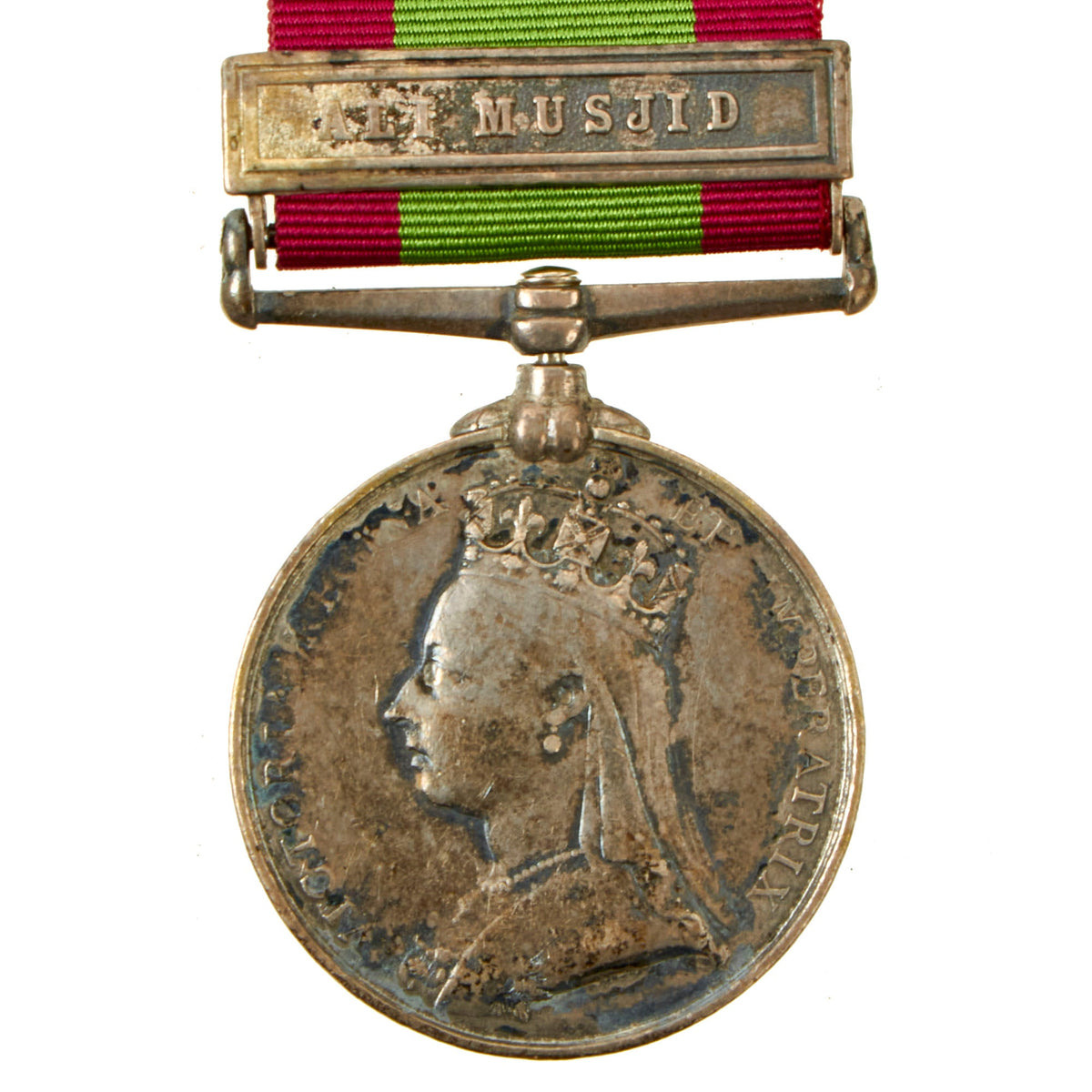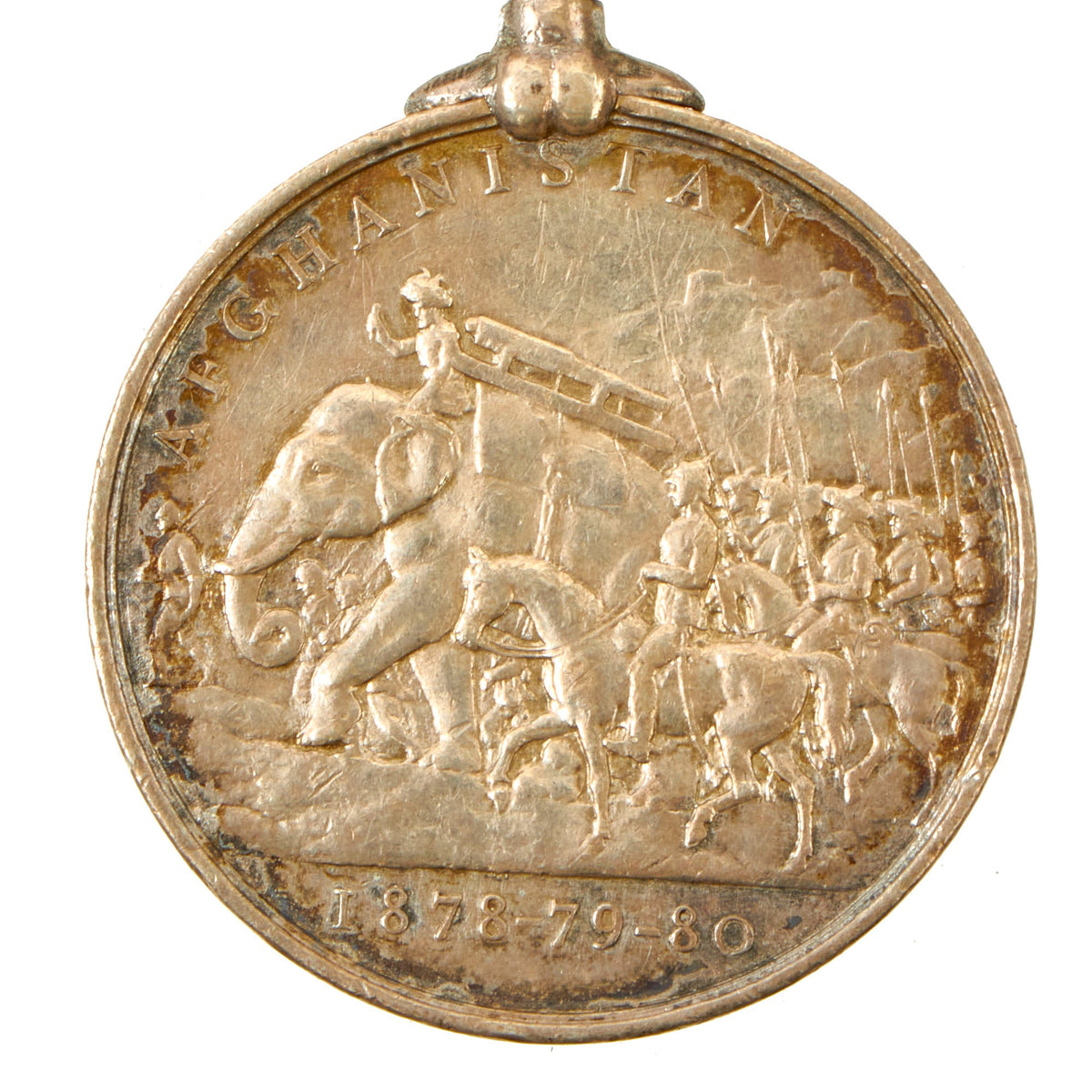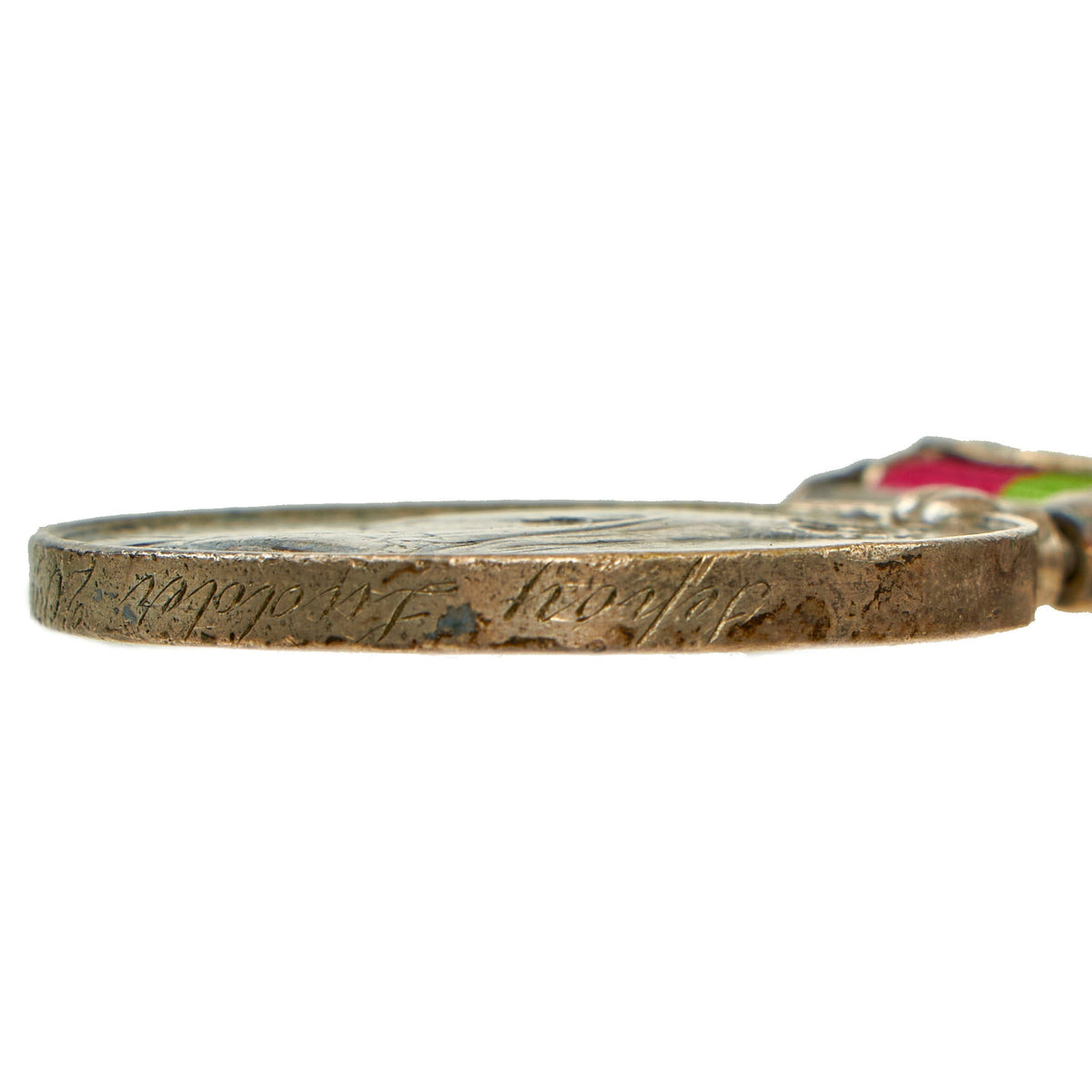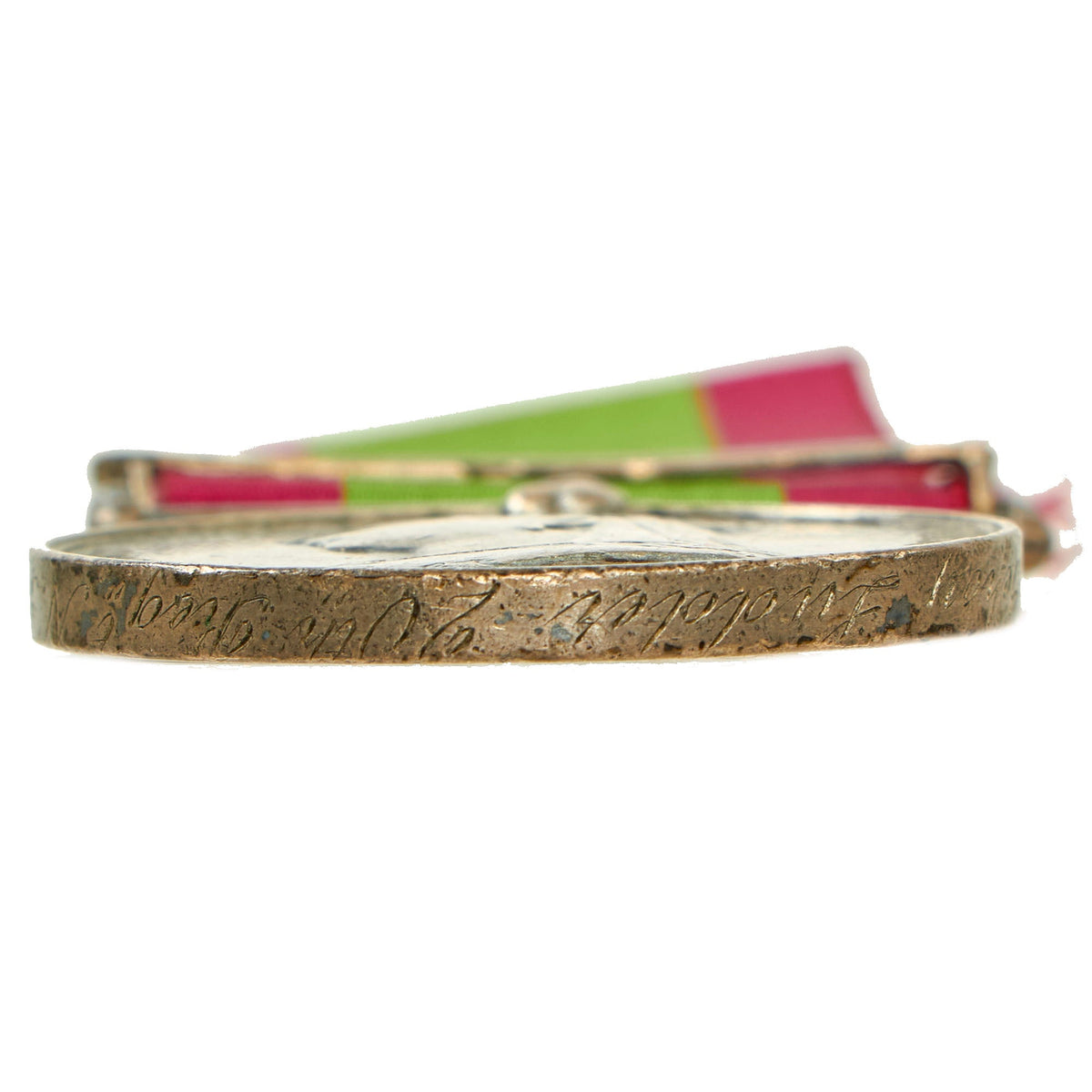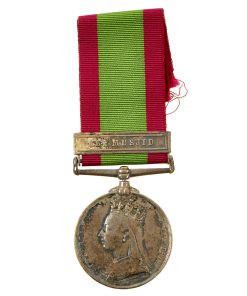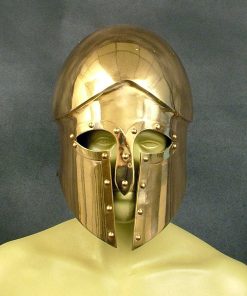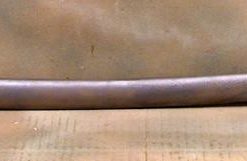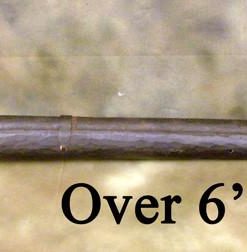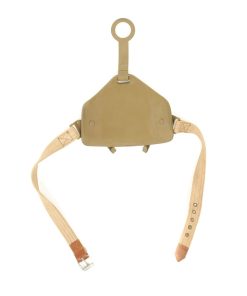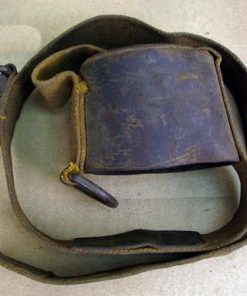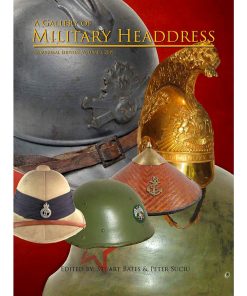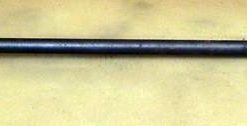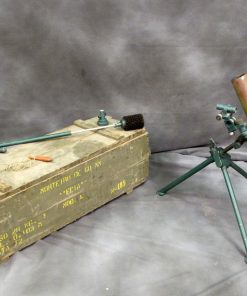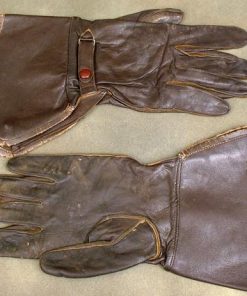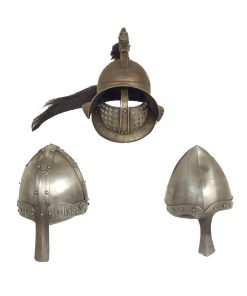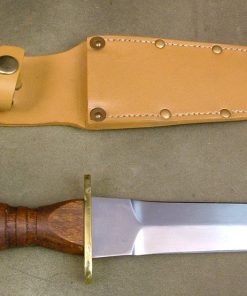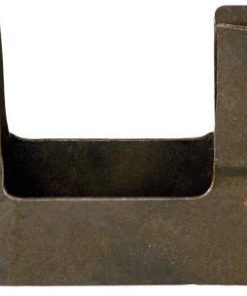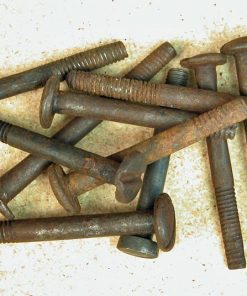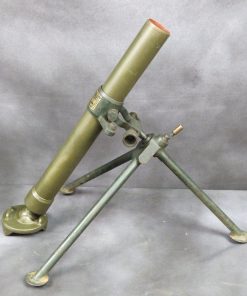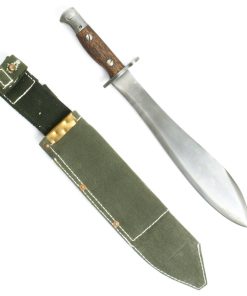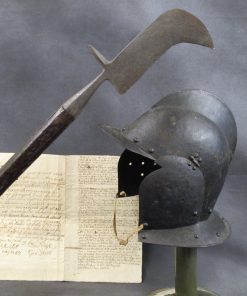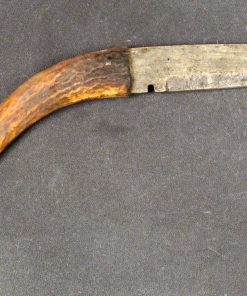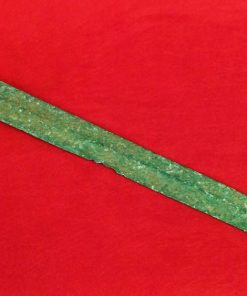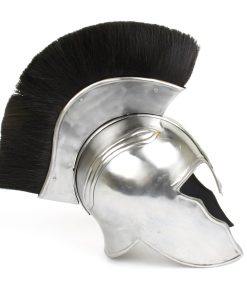Original British Raj Second Afghan War Afghanistan Medal With Ali Musjid Clasp For Sepoy Ludder 20th Duke of Cambridge’s Own Infantry (Brownlow’s Punjabis) “Native Infantry” Original Items
$ 395,00 $ 118,50
Original Item: Only One available. This is a wonderful example of a rather lovely British Campaign Medal. The medal itself is tarnished but the beautiful images on both the front and back are still easily distinguishable. The medallion portion of the medal is worn down on both sides, indicating the strong possibility of having been carried around by the soldier for many years, a common practice of those proud veterans.
The Afghanistan Medal, sanctioned on 19 March 1881, was awarded to members of the British and Indian armies who served in Afghanistan between 1878 and 1880 during the Second Afghan War, the first war being from 1839 to 1842.
The war was caused by British fears of increasing Russian involvement in Afghan affairs. In 1877 the Afghan Amir refused to accept a British Resident and in 1878 agreed a treaty with Russia granting it protective rights in Afghanistan. In response, a British-led force entered the country in November 1878 and advanced on Kabul. After defeats at Ali Musjid and Peiwar Kotal, the Afghans sued for peace and accepted a British Resident in Kabul, the war ending on 26 May 1879. After the Resident was murdered on 3 September 1879, the war recommenced. A British-led force occupied Kabul, defeating the Afghans en route at Charasia. Sporadic fighting continued and after defeat at Maiwand, a British force was besieged in Kandahar. General Roberts led a column that marched from Kabul to relieve Kandahar, the resulting Afghan defeat leading to the conclusion of the war in September 1880. The soldiers who took part in General Roberts’ march were awarded the Kabul to Kandahar Star in addition to the Afghanistan Medal.
Medals awarded to the 66th Foot (Berkshire Regiment) and E Battery of B Brigade, Royal Artillery, rate a high premium as these units sustained the heaviest casualties at the battle of Maiwand in July 1880.
When the first phase of the war ended in May 1879, it was proposed that the India General Service Medal be issued with clasps for Afghanistan, Ali Musjid and Peiwar Kotal. However, when the war recommenced in September 1879, it was decided to award a distinct medal to cover the whole campaign.
The Afghanistan Medal is a circular silver medal, 36 millimetres (1.4 in) in diameter, with the following design:
The obverse shows a veiled effigy of Queen Victoria, facing left, with “VICTORIA REGINA ET IMPERATRIX” around the edge.
The reverse shows marching and mounted soldiers with arms with an elephant carrying a cannon. In the upper-left of the medal around the edges is “AFGHANISTAN” and on the bottom in a straight line is “1878-79-80″
The medal hangs from a plain suspender which is attached to the medal with a double toe claw. The ribbon is 33 millimetres (1.3 in) wide and is dark green with broad crimson edges and may be a replacement.
The recipient’s rank, name and unit are engraved on the rim of the medal. The inscription reads as:
SEPOY LUDDER 20TH REGT. NI
After the Indian Mutiny, the 20th Regiment of Bengal Native Infantry became the 8th Regiment of Punjab Infantry. The 20th Duke of Cambridge’s Own Infantry (Brownlow’s Punjabis) was a regiment of the British Indian Army. It was raised in 1857, as the 8th Regiment of Punjab Infantry. It was designated as the 20th Duke of Cambridge’s Own Infantry (Brownlow’s Punjabis) in 1904 and became 2nd Battalion (Duke of Cambridge’s Own) 14th Punjab Regiment in 1922. In 1947, it was allocated to the Pakistan Army, where it continues to exist as 6th Battalion The Punjab Regiment.
Plain silver clasps were awarded and are found as follows:
“ALI MUSJID” (21 November 1878)
“PEIWAR KOTAL” (2 December 1878)
“CHARASIA” (6 October 1879)
“KABUL” (10–23 December 1879)
“AHMED KHEL” (19 April 1880)
“KANDAHAR” (1 September 1880)
The maximum number of clasps awarded to any one man was four.
The Battle of Ali Masjid, which took place on 21 November 1878, was the opening battle in the Second Anglo-Afghan War between the British forces, under Lieutenant-General Sir Samuel James Browne, and the Afghan forces, under Ghulam Haider Khan. The perceived offense of an Afghan general’s refusal to allow a British envoy entrance to the country was used as an excuse to attack the fortress of Ali Masjid, as the opening battle in the war. Despite numerous setbacks, including half the troops getting lost or delayed and missing the battle entirely, the British were lucky that the Afghans abandoned their position overnight.
The medal was awarded without a clasp to those who saw service in Afghanistan between 22 November 1878 – 26 May 1879, or 3 September 1879 – 20 September 1880, but did not take part in these major actions.
This lovely medal is a welcomed addition into any collection. Comes more than ready for further research and display.
Fast Shipping with Professional Packaging
Thanks to our longstanding association with UPS FedEx DHL, and other major international carriers, we are able to provide a range of shipping options. Our warehouse staff is expertly trained and will wrap your products according to our exact and precise specifications. Prior to shipping, your goods will be thoroughly examined and securely secured. We ship to thousands clients each day across multiple countries. This shows how we're dedicated to be the largest retailer on the internet. Warehouses and distribution centres can be located throughout Europe as well as the USA.
Note: Orders with more than one item will be assigned a processing date depending on the item.
Before shipping before shipping, we'll conduct a thorough inspection of the items you have ordered. Today, the majority of orders will be delivered within 48 hours. The delivery time will be between 3-7 days.
Returns
The stock is dynamic and we cannot completely manage it because multiple stakeholders are involved, including our factory and warehouse. So the actual stock may alter at any time. It's possible that you may not receive your order once the order has been made.
Our policy is valid for a period of 30 days. If you don't receive the product within 30 days, we are not able to issue a refund or an exchange.
You can only return an item if it is unused and in the same state as the day you received it. You must have the item in its original packaging.
Related products
Uncategorized
Uncategorized
Uncategorized
Uncategorized
Uncategorized
Uncategorized
Uncategorized
Uncategorized
Uncategorized
Uncategorized
Uncategorized
Angolan Rebel 1970s era 60mm Inert Display Mortar from Angolan Civil War Original Items
Uncategorized
Armoured Fighting Vehicles of the World: AFVs of World War One (Hardcover Book) New Made Items
Uncategorized
Armored Burgonet Helmet & Polearm from Scottish Castle Leith Hall Circa 1700 Original Items
Uncategorized
Uncategorized
Uncategorized
Uncategorized
